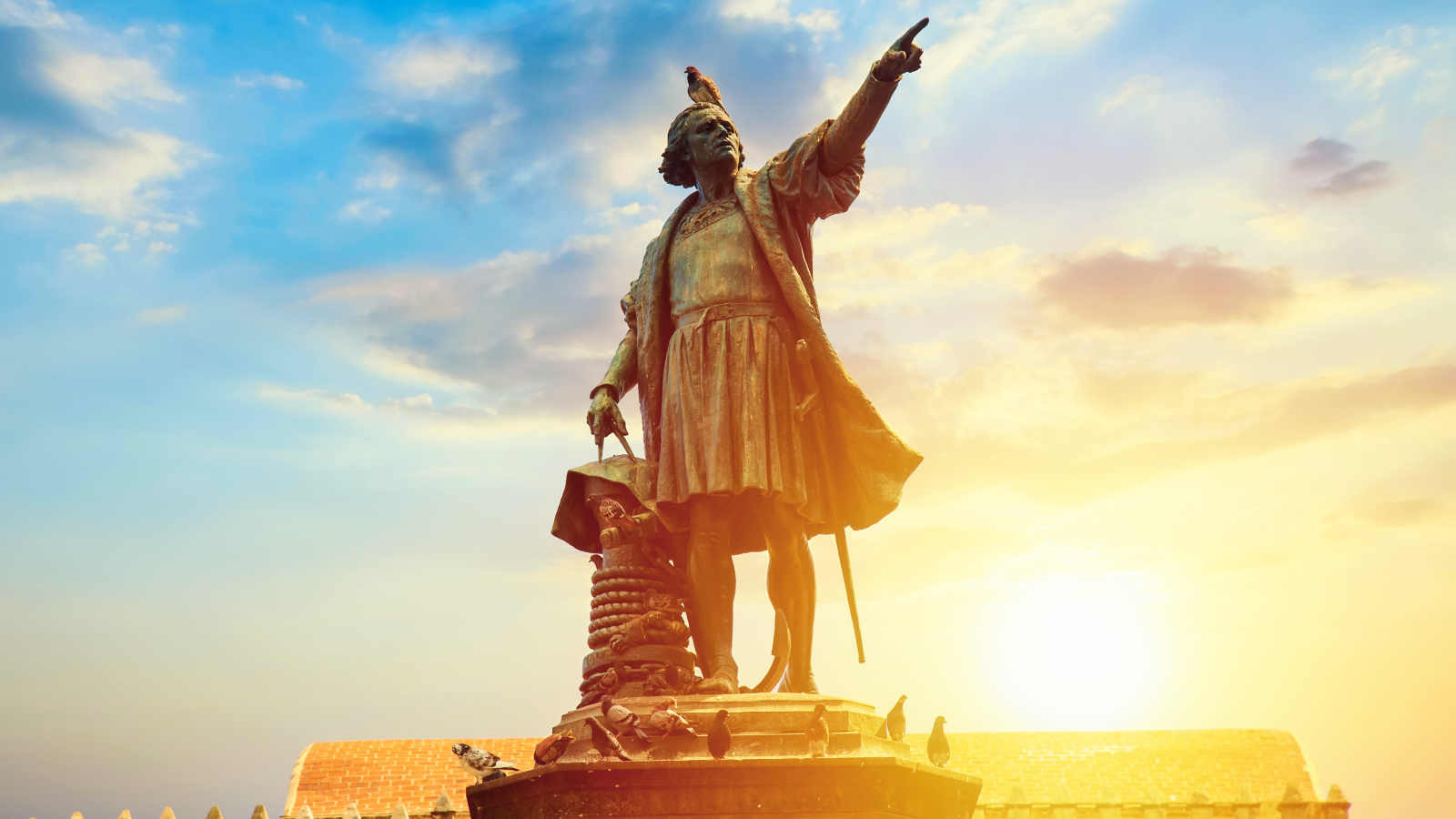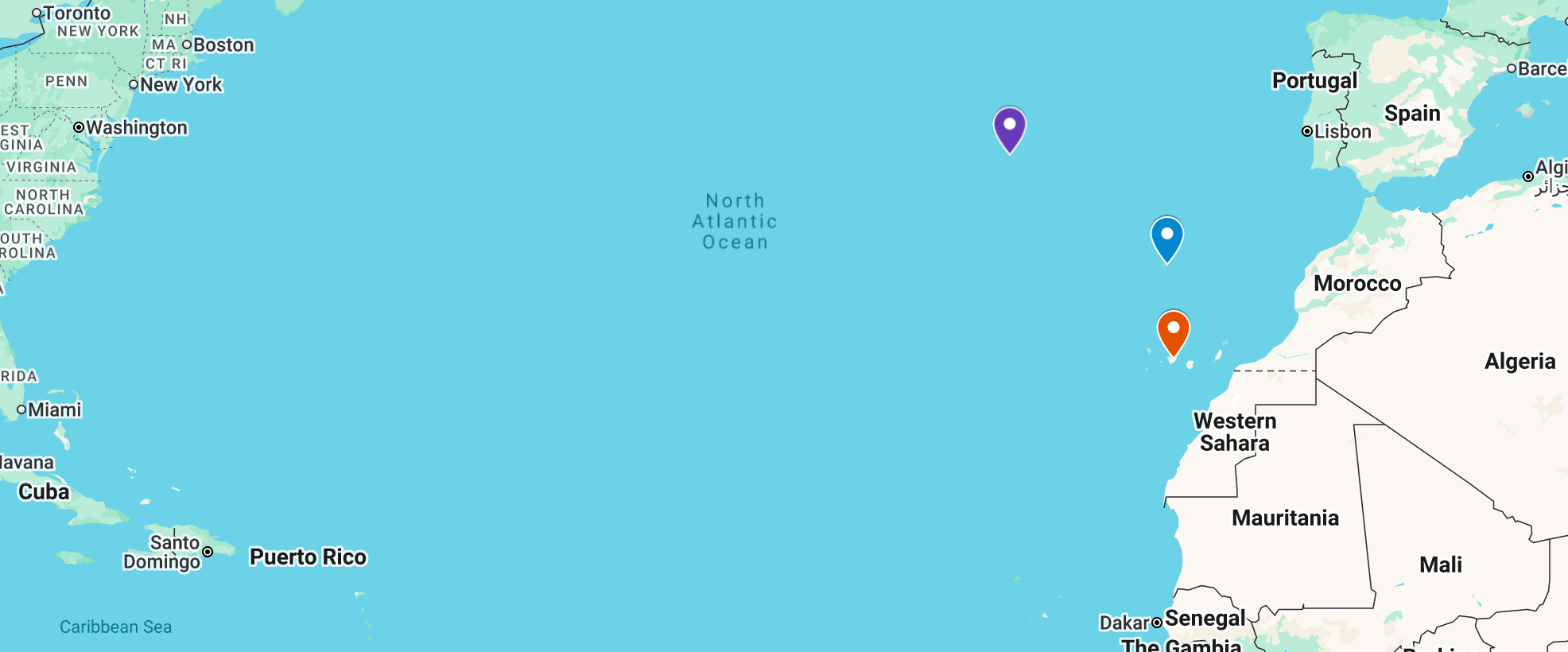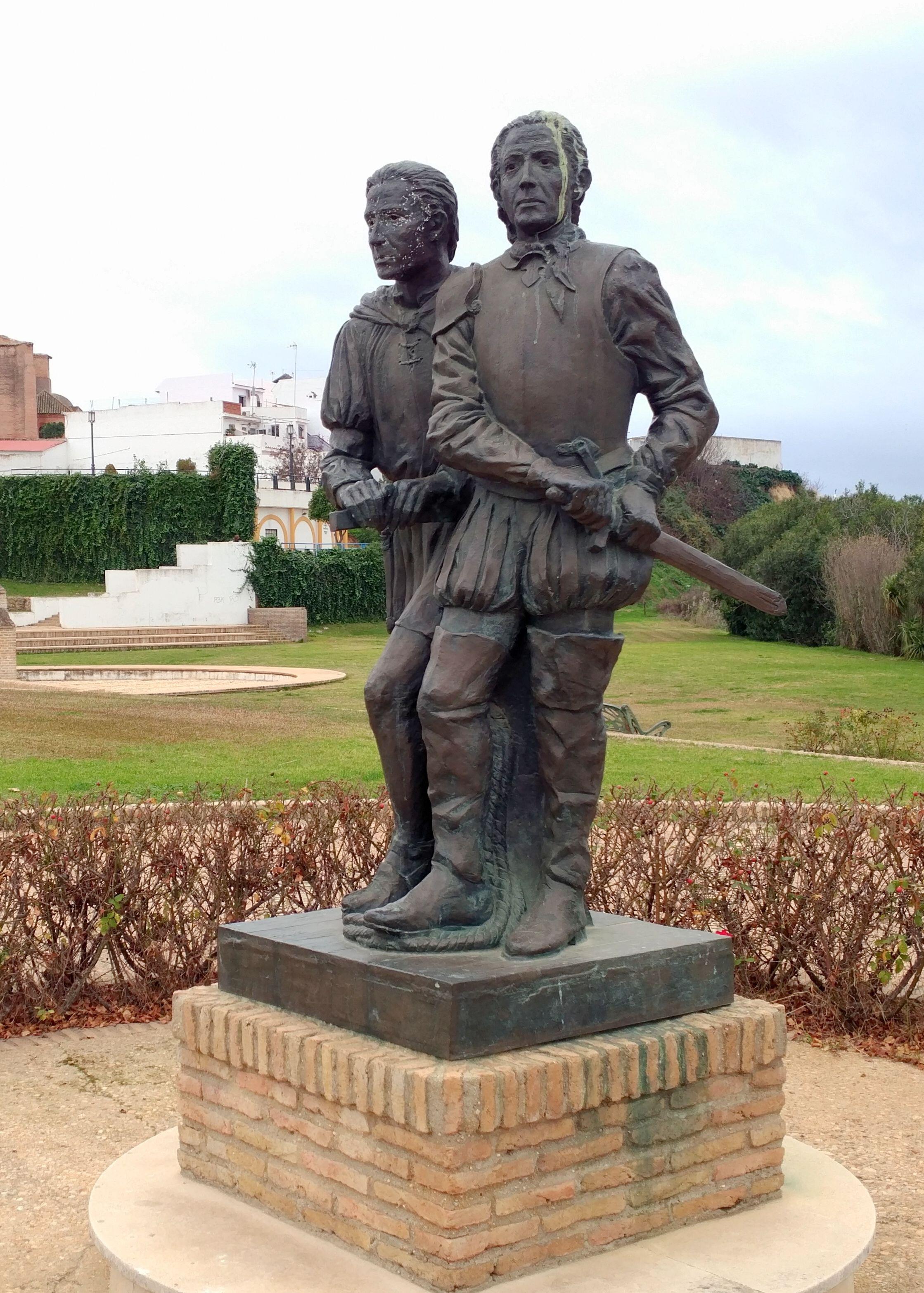What if Christopher Columbus had never reached the Americas?
How would history have unfolded if Christopher Columbus had never reached the New World?

Get the world’s most fascinating discoveries delivered straight to your inbox.
You are now subscribed
Your newsletter sign-up was successful
Want to add more newsletters?

Delivered Daily
Daily Newsletter
Sign up for the latest discoveries, groundbreaking research and fascinating breakthroughs that impact you and the wider world direct to your inbox.

Once a week
Life's Little Mysteries
Feed your curiosity with an exclusive mystery every week, solved with science and delivered direct to your inbox before it's seen anywhere else.

Once a week
How It Works
Sign up to our free science & technology newsletter for your weekly fix of fascinating articles, quick quizzes, amazing images, and more

Delivered daily
Space.com Newsletter
Breaking space news, the latest updates on rocket launches, skywatching events and more!

Once a month
Watch This Space
Sign up to our monthly entertainment newsletter to keep up with all our coverage of the latest sci-fi and space movies, tv shows, games and books.

Once a week
Night Sky This Week
Discover this week's must-see night sky events, moon phases, and stunning astrophotos. Sign up for our skywatching newsletter and explore the universe with us!
Join the club
Get full access to premium articles, exclusive features and a growing list of member rewards.
Christopher Columbus sailed westward in 1492, hoping to find a new route to China and South Asia, but he hit a major roadblock — the Americas — and landed in the Caribbean.
Columbus wasn't the first European to reach the Western Hemisphere; the Vikings had landed in Newfoundland about 500 years earlier. But the Vikings didn't colonize North America, and Columbus' expedition led to the large-scale colonization of the Western Hemisphere by Europeans.
So, how would history have played out if Columbus' voyage had failed — perhaps if his vessels had sunk or the crews were forced to turn around before reaching the Western Hemisphere?

Sign up for our weekly Life's Little Mysteries newsletter to get the latest mysteries before they appear online.
Some experts told us that, in a sense, Columbus' voyage did fail.
He "did not fulfill his goal to prove a new westward route to Asia's riches," Douglas Hunter, an independent scholar who holds a doctorate in history and has written extensively about Columbus and other explorers, told Live Science in an email. Columbus himself did not admit this. Instead, he continued to claim that the lands he had "discovered" were part of Asia, even as evidence mounted to the contrary.
Who would have "discovered" the New World?
Indigenous peoples reached the Americas at least 23,000 years ago, but Europeans didn't arrive until much later. Scholars agreed that if Columbus had failed to reach the Western Hemisphere, someone else from Europe would have reached it soon enough.
The "1480s had demonstrated that Atlantic exploration was profitable, thanks to such products as sugar, cod, seals, whales, walrus and narwhal ivory, West African gold, and Icelandic and African slaves," Felipe Fernández-Armesto, a history professor at the University of Notre Dame, told Live Science in an email. "So landfall on the far shore would [have happened] some time."
Who would have reached the Western Hemisphere and what would have happened is a source of debate. Geoffrey Symcox, a professor emeritus of history at UCLA, said that Spain would have likely lost to its Iberian neighbor.
"If Spain didn't try again, the voyage would have been sponsored by Portugal," Symcox told Live Science in an email. He noted that Portugal had been sailing down the coast of Africa since the early 15th century and that the Portuguese had ventured far enough into the Atlantic to colonize the Azores and Madeira.

It's likely that "if Columbus had failed, the next Atlantic voyage would have been promoted, quickly, by the Portuguese Crown," Symcox said. "The king of Portugal was well aware of Spanish intentions and would have moved fast to pre-empt any further Spanish moves."
Fernández-Armesto isn't so sure that Portugal would have beaten Spain, noting that the Canary Islands, which Spain controlled and which Columbus sailed from, was the best place for launching a westward expedition.
It "would probably happen to a Spanish expedition, as the Canary Islands were, from the point of view of the wind system, the best place to start from," Fernández-Armesto said.
How would history have unfolded?
If a Portuguese explorer had reached the Western Hemisphere first, a number of events would be different. Hunter noted that the Treaty of Tordesillas, in 1494, which divided the Atlantic realm between Spain and Portugal, would not have occurred, as Portugal may not have felt compelled to split the region with Spain. The 16th-century conquests of Hernán Cortés against the Aztec Empire and Francisco Pizarro against the Inca would not have happened as both of them were Spaniards backed by Spain, although someone from Portugal probably would have carried them out, Hunter said.
If Spain had still reached the Western Hemisphere first, as Fernández-Armesto thinks is likely, then history may not be that different. The "historical difference would have been slight and the delay probably not significant," he said.
Linguistically some things could be different. If a Portuguese explorer had reached the Americas first, it's possible Portuguese would be more widely spoken in the Western Hemisphere than it is today.
Also, if Columbus had failed to reach the Western Hemisphere, it's no surprise that his name would not be widespread across the Americas. The District of Columbia in the U.S. and the country of Colombia are just two of many places that bear his name.
It's possible that North and South America would still have places named for a European explorer. Hunter noted that the Pinzón brothers commanded the Niña and Pinta in Columbus' fleet. If Columbus had failed but the two brothers had later sailed successfully to the Western Hemisphere, it's possible some places could be named after them. Both brothers were highly capable sailors who Columbus considered qualified to captain two of the fleet's vessels.
"The capital district of the United States could be Pinzonia," Hunter said.
None of the sources Live Science contacted mentioned a scenario in which the Indigenous peoples of the Western Hemisphere would not be adversely affected by European contact through the devastation brought by the diseases they introduced and conquests they carried out. However, it's important to note that the Indigenous peoples of the Western Hemisphere fought back, and today, native groups continue on, practicing their languages and cultures.

Owen Jarus is a regular contributor to Live Science who writes about archaeology and humans' past. He has also written for The Independent (UK), The Canadian Press (CP) and The Associated Press (AP), among others. Owen has a bachelor of arts degree from the University of Toronto and a journalism degree from Ryerson University.
You must confirm your public display name before commenting
Please logout and then login again, you will then be prompted to enter your display name.
 Live Science Plus
Live Science Plus












